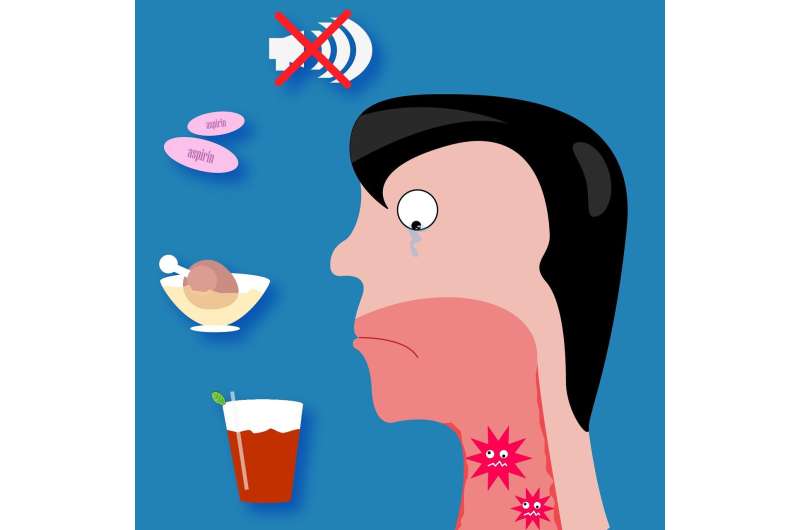Credit: CC0 Public Domain
DEAR MAYO CLINIC: Every few months, my teenage son gets canker sores in the back of his throat that really bother him and last for about a week. Is there something that he can do to prevent them? Will this continue throughout his life?
ANSWER: Canker sores rarely pose a serious health concern. But as your son has found out, they can be annoying. Given that his canker sores keep coming back, it would be a good idea to make an appointment for your son to see his primary care provider and have his condition evaluated to see if treatment might be appropriate.
Canker sores, also called aphthous ulcers, are small, shallow sores that develop inside the cheeks, at the base of the gums, under the tongue or in the back of the throat. Typically, they appear red around the edges and gray in the center. Although they don't always cause discomfort, canker sores sometimes can be painful.
As in your son's situation, canker sores often go away on their own in a week or two. Unlike cold sores, canker sores are not contagious. It's unclear exactly what triggers canker sores. They may develop after a minor mouth injury, such as those that result from an accidental cheek bite or dental work.
They also may be a reaction to food sensitivities, particularly acidic or spicy foods. Nuts, eggs, cheese, strawberries, chocolate and coffee also seem to trigger canker sores in some people. Toothpastes and mouth rinses that contain the ingredient sodium lauryl sulfate may lead to canker sores, too.
Sometimes canker sores can form as a result of a viral infection, hormonal changes or stress. Canker sores also may be associated with certain medical conditions, such as celiac disease, Crohn's disease, ulcerative colitis, Behcet's disease and certain immune system disorders.
When your son goes in for a medical assessment, his care provider likely will ask questions to narrow down the potential causes of the canker sores in his case. He or she will need to know how long your son has been experiencing recurrent canker sores, if the sores seem to be getting better or worse over time, and if your son has any other medical conditions or frequent illnesses.
After an initial evaluation, his provider may recommend laboratory tests, such as bloodwork, if he or she suspects that an underlying health problem could be contributing to the development of canker sores.
Treatment for canker sores usually isn't necessary. But when the sores continue to come back, treatment may be used to ease symptoms and prevent future outbreaks. Topical products applied directly to canker sores can speed healing and reduce the discomfort. These medications generally include active ingredients such as benzocaine, hydrogen peroxide or fluocinonide.
Because topical products can be difficult to apply to sores in the back of the throat, a mouth rinse containing lidocaine or the steroid dexamethasone may be more beneficial for reducing pain associated with those sores. A low-dose of antiviral medication may be used for a period of time to see if that blocks the development of canker sores over time.
When he has canker sores, your son might find it useful to avoid spicy and acidic foods, as they may lead to further pain and irritation of the sores. Putting ice chips in his mouth and allowing them to slowly dissolve over the sores in the back of his throat may help, too.
Working with his health care provider, it's likely that your son can find a way to reduce the discomfort and frequency of his canker sores. It is unlikely that the outbreaks will continue to be a lifelong problem.
©2020 Mayo Foundation for Medical Education and Research
Distributed by Tribune Content Agency, LLC.






















